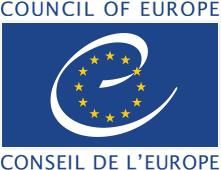Documents formulating the position of the Council of Europe on language education policy
 Conventions:
Conventions:
European Cultural Convention (1954)
European Charter for Regional or Minority Languages
Framework Convention for the Protection of National Minorities
Policy Recommendations and Resolutions:
Committee of Ministers of the Council of Europe
Recommendation CM/Rec(2014)5 to member States on the importance of competences in the language(s) of schooling for equity and quality in education and for educational success. Explanatory Memorandum------------------------------------ (available in Italian)
Recommendation CM/Rec(2012)13E to member States on ensuring quality education
Recommendation CM/Rec(2008)7E to member states on the use of the Council of Europe's “Common European Framework of Reference for Languages” (CEFR) and the promotion of plurilingualism (and Explanatory Memorandum with Measures)
Recommendation CM/Rec(2008)4 of the Committee of Ministers to member states on strengthening the integration of children of migrants and of immigrant background
Recommendation R (98) 6 on modern languages [based on the results of the CDCC Project ‘Language Learning for European Citizenship’ (1989 – 1996)]
Recommendation R (82)18 based on the results of the CDCC Project N° 4 (‘Modern Languages 1971-1981’)
Parliamentary Assembly of the Council of Europe (PACE)
(Recommendations addressed to the Committee of Ministers)
Recommendation 2034 (2014) on Integration tests : helping or hindering integration ?
Recommendation 1740 (2006) on The place of the mother tongue in school education
Recommendation 1598 (2003) on the protection of Sign languages in the member states of the Council of Europe
Recommendation 1539 (2001) on the European Year of Languages 2001 and Reply from the Committee of Ministers, declaring an annual European Day of Languages (EDL)
Recommendation 1383 (1998) on Linguistic Diversification and Reply from the Committee of Ministers (CM(99)97)
Recommendation 814 (1977) on Modern Languages in Europe
Standing Conference of European Ministers of Education
Resolution on the European Language Portfolio adopted at the 20th Session of the Standing Conference (Cracow, Poland, October 2000)
White Paper on Intercultural Dialogue – Living together as equals in dignity, 2008
MIGRANTS : Compilation (extracts) of official texts – Committee of Ministers, Parliamentary Assembly – Congress of Local and Regional Authorities
· Adults : Linguistic integration of adult migrants
· Students : Education of children and adolescents from migrant backgrounds. More...




/https%3A%2F%2Fprofilepics.canalblog.com%2Fprofilepics%2F1%2F0%2F1076071.jpg)